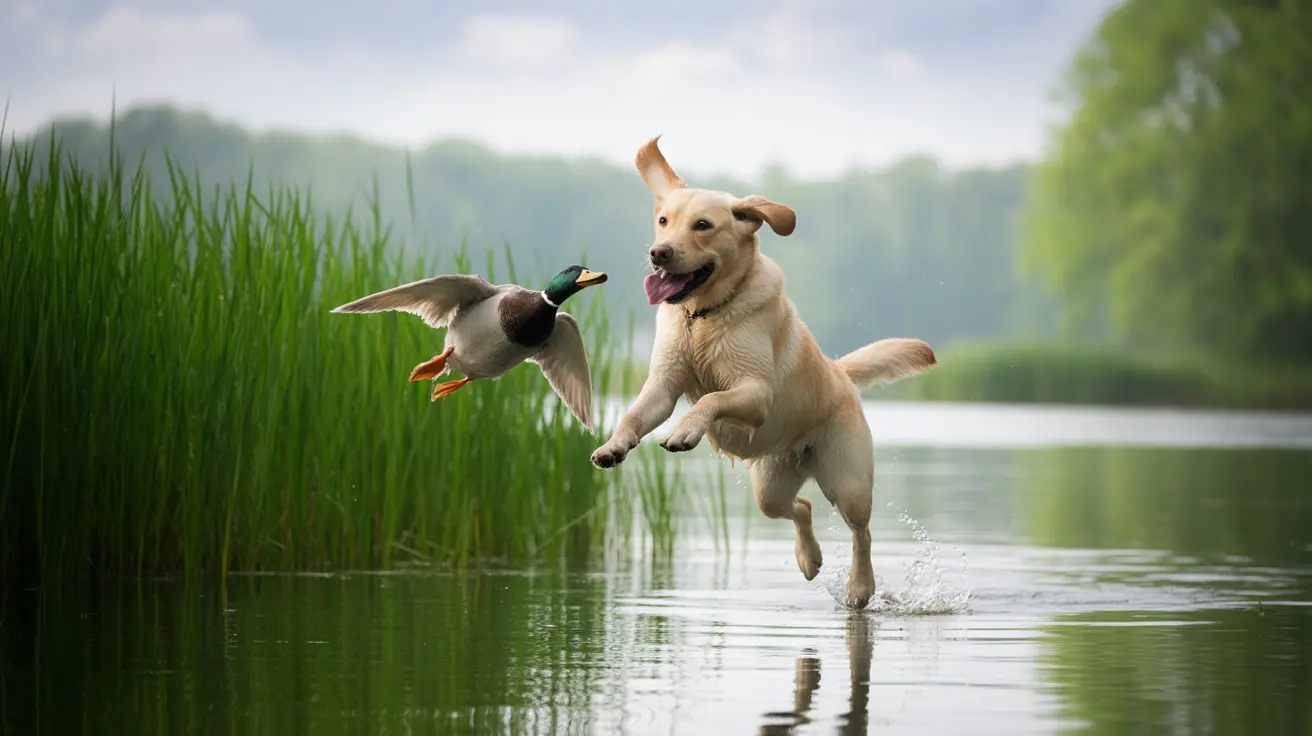For waterfowl hunters, a reliable duck hunter dog is more than just a pet – they're an invaluable hunting partner and faithful companion. These specialized breeds combine natural instincts, physical capabilities, and trainability to excel in challenging waterfowl hunting environments.
In this comprehensive guide, we'll explore the top duck hunting breeds, essential training techniques, and vital care considerations to help you choose and develop the perfect hunting companion.
Top Duck Hunting Breeds and Their Characteristics
Labrador Retriever: The Gold Standard
Consistently ranked as America's favorite hunting companion, Labrador Retrievers possess an unmatched combination of intelligence, trainability, and water-loving nature. Their dense, water-resistant double coat and powerful build make them ideal for cold-water retrieves.
Chesapeake Bay Retriever: The Rugged Specialist
Developed specifically for harsh waterfowling conditions, Chesapeake Bay Retrievers feature an oily, waterproof coat and exceptional stamina. These powerful dogs excel in rough water and cold conditions, making them perfect for serious duck hunters.
Essential Training for Your Duck Hunting Companion
Foundation Training
Successful duck hunter dogs require a solid foundation in basic obedience before advancing to specialized hunting skills. Start with fundamental commands like "sit," "stay," and "come" while gradually introducing water work and retrieval exercises.
Water and Gunfire Introduction
Early exposure to water and controlled gunfire sounds is crucial for developing a confident hunting companion. Begin with shallow water play and gradually progress to deeper water retrieves. Use positive reinforcement to build associations between gunfire and rewarding experiences.
Maintaining Your Hunting Partner's Health
Physical Conditioning
Duck hunting demands peak physical condition from both hunter and dog. Regular exercise, swimming sessions, and retrieving practice help maintain your dog's stamina and hunting readiness throughout the season.
Post-Hunt Care
After each hunting session, thoroughly check your dog for injuries, clean and dry their coat, and examine ears and paws for signs of irritation. Proper nutrition and rest are essential for recovery between hunts.
Frequently Asked Questions
What are the best dog breeds for duck hunting and what makes them ideal?
The top duck hunting breeds include Labrador Retrievers, Chesapeake Bay Retrievers, and Golden Retrievers. These breeds excel due to their water-resistant coats, strong swimming abilities, natural retrieving instincts, and high trainability.
How do I start training my duck hunting dog to retrieve and follow commands?
Begin with basic obedience training at 8-12 weeks of age, then progress to simple retrieves with toys. Gradually introduce water work and dummy retrieves, always using positive reinforcement methods to build confidence and reliability.
What techniques help build confidence in a duck hunting dog around water and gunfire?
Start with positive water experiences in shallow areas, progressing slowly to deeper water. For gunfire conditioning, begin with distant shots while the dog is engaged in enjoyable activities, gradually decreasing the distance as they become comfortable.
How should I care for and maintain the coat and health of a duck hunting dog after a hunt?
After hunting, rinse your dog with clean water, thoroughly dry their coat, and check for cuts or thorns. Pay special attention to ears, paws, and joints. Provide a high-quality diet and ensure adequate rest between hunting sessions.
When is the right age to take my dog on its first duck hunting trip and how should I prepare?
Most dogs are ready for their first hunt between 10-18 months, after completing basic training and water work. Prepare by conducting mock hunts, ensuring the dog is steady to shot, and comfortable with water retrieves in various conditions.
Conclusion
A well-trained duck hunter dog is essential for successful waterfowl hunting. Whether you choose a traditional Labrador Retriever or another hunting breed, proper training, care, and patience will help develop a reliable hunting partner and cherished companion.
Remember that success in the field starts with careful breed selection, consistent training, and dedicated care. With the right approach, you'll develop a hunting companion that excels both in the blind and at home.






